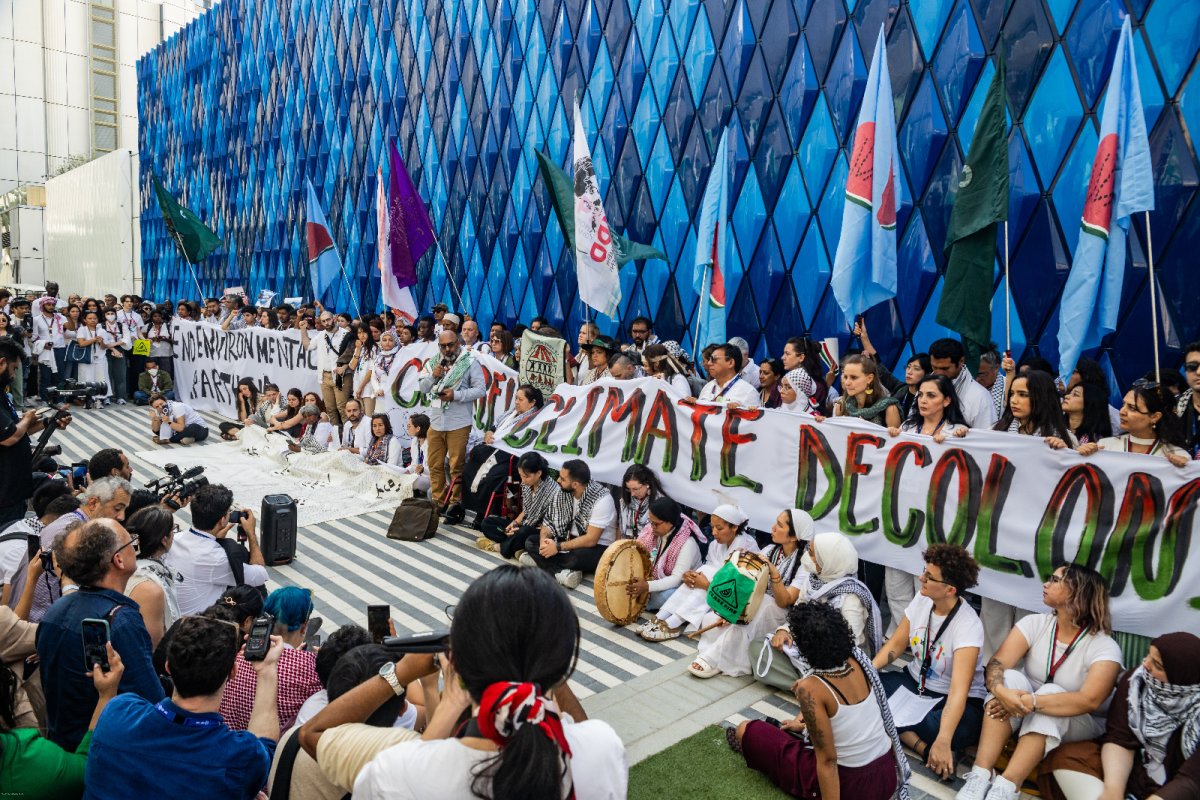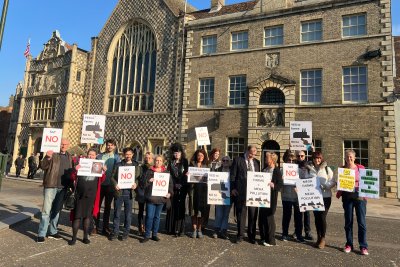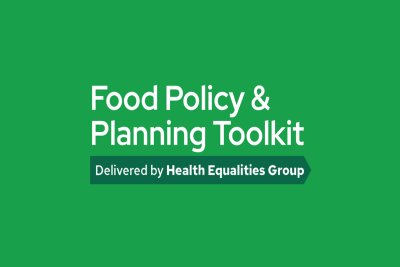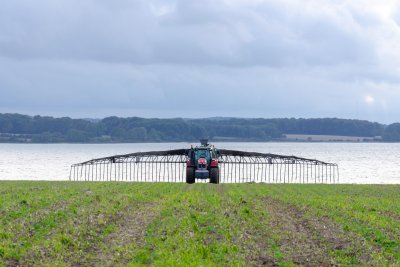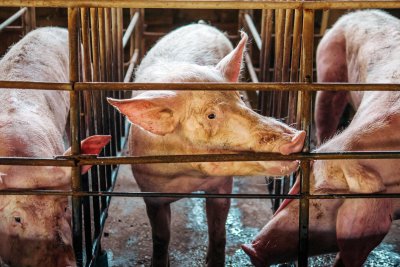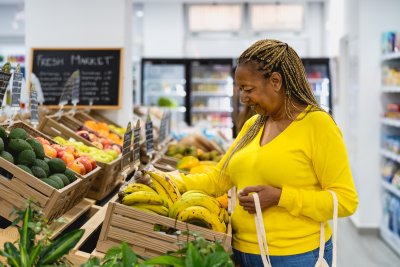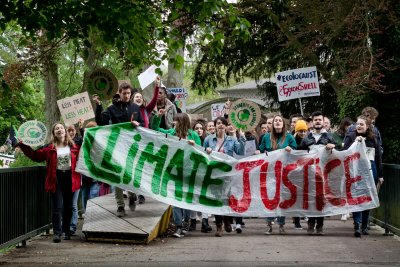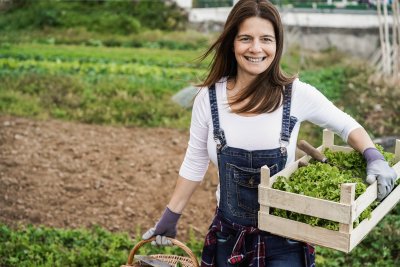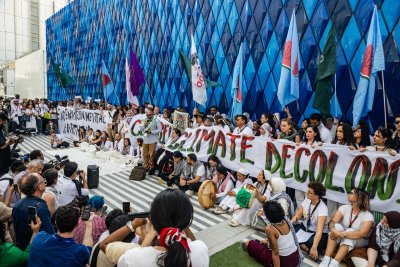 Climate decolonisation protests at COP28. Credit: Mídia NINJA on Flickr
Climate decolonisation protests at COP28. Credit: Mídia NINJA on Flickr
UN Global Roadmap sets out how food and farming must transform to tackle hunger and achieve net zero
Targets include cutting food-related emissions by 25% by 2030, halving methane emissions by 2045, and banning junk food adverts to children.
Food production is a major contributor to climate change and biodiversity loss, and is deeply vulnerable to the impacts of climate change. But until now, the UN has not set out in detail how the world can reduce global greenhouse gases to net zero while ensuring a growing population can meet its nutritional needs.
The document launched today at COP28 sets out 20 key targets in 10 domains, focussing on global-level changes. This will be followed - at COP29 - with ‘intricate details at the regional level’. Detailed ‘Country-level Action Plans’, and requirements for monitoring and accountability will be set out during COP30.
The actions include:
- Reducing livestock emissions by 3% annually and cutting methane emissions from livestock by 25% by 2030, but ‘intensifying’ livestock production.
- Managing 100% fisheries sustainably by 2030.
- Improving efficiency in crops through diversification, genetics and precision farming, with productivity to increase by 1.5% per year to 2050. Increasing legume production and multi-cropping, and reducing fertiliser overuse.
- Policies to make diets healthier: By 2030, all countries should have clear dietary guidelines which include environmental considerations, and legislation restricting harmful food advertisements to children.
- Change food and beverages taxes and subsidies, conscious of making healthier and more sustainable choices accessible to those on lower incomes.
- Public procurement, including school food, to be consistent with updated dietary guidelines.
- Reduce food waste by 50% per capita by 2030, at the retailer and consumer levels.
- Regenerate ecosystems, and halt deforestation by 2025, including protecting land tenure, especially for women and indigenous people.
- Better water and soil management, including with a transition to regenerative farming.
- Inclusivity and representation, with all countries developing programmes to protect the most vulnerable from the economic, social and environmental shocks from the climate emergency.
- Good data, including all farmers having access to data on their GHG emissions, and these monitored for all countries annually.
Positively, the roadmap emphasises the need to centre the right to food, reducing inequality, a just transition, and ensuring access to healthy diets.
On livestock, the roadmap recognises that the sector directly contributes as much as 50 percent of emissions when factoring in feed requirements and downstream emissions. It also states that in a business-as-usual scenario, global livestock emissions could increase by more than 40%. The roadmap proposes improving efficiency through genetics, lower-impact feed and better animal health, though not through intensification methods that involve excessive antibiotic use. It also sets out goals to change the livestock population to match nutritional needs and ‘environmental opportunities and constraints’, with a regionalised approach proposed. In the UK we eat nearly ten times as much red meat and more than twice as much chicken and dairy as is recommended for a planetary health diet.
On livestock it also proposes an increase in agroforestry and silvopasture, certification and ecolabelling, and revamping subsidies to support sustainable farming.
On health, the roadmap proposes public campaigns to encourage healthy diets, but cautions that improving the overall food environment, including the affordability of foods, is more impactful. It also considers labelling, recommending that public authorities should step in to define nutritional and environmental criteria for labelling. Most notably, the roadmap includes a target to protect children from unhealthy food and drink advertising, recognising the impact of advertisements on consumer choices. It also recommends improving access to locally-produced food, especially for urban populations.
The report has been criticised for failing to ‘adequately address fossil fuels, agrochemicals, industrial livestock, corporate capture, or dietary change.’ (see author and Sustain trustee Rob Percival on X)
Ruth Westcott, climate and nature emergency coordinator at Sustain said:
"It’s great to see this long-awaited roadmap emphasising reducing inequality, significantly cutting emissions and recovering habitats. But this was promised as a set of actions to get to net zero, and the solutions simply don’t get us close. There are some great actions around restricting advertising, including sustainability in health guidelines and redesigning subsidies, but the recommendations around livestock are bizarre and contradictory. On the one hand, the roadmap talks about diversification, reducing deforestation and boosting agroecology. Intensifying livestock farming would do the opposite. Intensive livestock is already decimating river habitats, causing deforestation for feed crops, and is a threat to public health. Producing and eating even moderately less meat and more locally-produced legumes pulses and vegetables in richer countries would mean freeing up land and could get us comfortably to these emissions reductions targets.
Big agribusinesses, and in particular Big Livestock, have been out in force at COP28 and this is clear to see in this roadmap. Many of the tech-focussed, intensification proposals are largely unproven and will drive more power into the hands of big business and boost their profits, rather than benefit farming communities, public health and the environment. The regional and national components to come must be better aligned with the problems that UK diets and food production are causing.”
The roadmap comes as delegates at COP28 have warned about the risk to food production from climate change. Speaking to the Guardian, the US special envoy for global food security, Cary Fowler, said:
“Agriculture will have significant problems at 1.5C, it’s going to be even more problematic than today,” he warned. “The worst years climatically for agriculture in the past will be the best years for agriculture in the future. That is pretty sobering. We have to do everything we can to reduce global warming.”
Henry Dimbleby, UK food tsar, said:
“In the end, what you need is regulation… “We need to look at this globally, at how we share resources such as land and how to create incentives to shape a food system that feeds the world, sequesters carbon and restores biodiversity.”
Last week, the UK's House of Commons Environmental Audit Committee published a report urging the government to improve our diets and set out a land use framework to protect the UK from risks to food security. It echoed many of the actions in the UN Roadmap.
Food for the Planet: Helping local authorities to tackle the climate and nature emergency through food.
Sustain
The Green House
244-254 Cambridge Heath Road
London E2 9DA
020 3559 6777
sustain@sustainweb.org
Sustain advocates food and agriculture policies and practices that enhance the health and welfare of people and animals, improve the working and living environment, promote equity and enrich society and culture.
© Sustain 2025
Registered charity (no. 1018643)
Data privacy & cookies
Icons by Icons8
